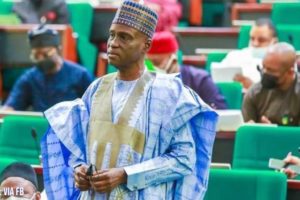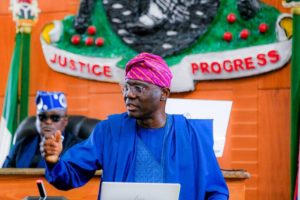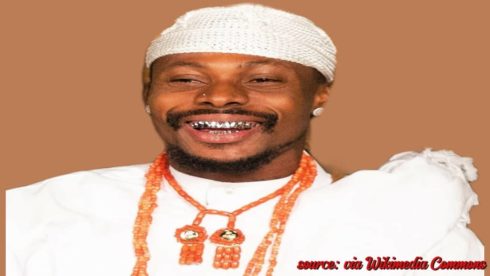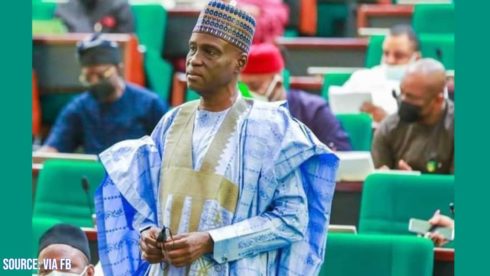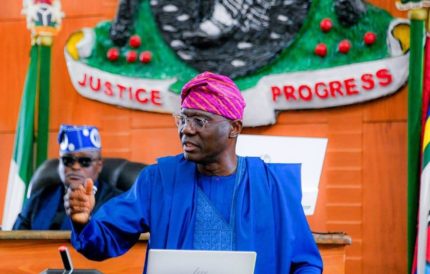Asake, a prominent Nigerian singer known for his unique sound, has risen to fame with his distinctive Yoruba-language music. Hailing from Nigeria, Asake’s success in the music industry is marked by his ability to blend traditional Yoruba rhythms with modern Afrobeats. His debut album, Mr. Money With The Vibe, received critical acclaim and showcased his commitment to representing his cultural heritage through his music.
In an era where global music trends often overshadow regional influences, Asake’s dedication to singing primarily in Yoruba sets him apart. His choice to embrace his native language not only underscores his cultural pride but also challenges the homogenization of global pop music. Ahmed Ololade’s success highlights the growing appreciation for African languages and cultural expressions in the international music scene.
Asake’s Response to Criticism
Recently, Asake addressed critics who have questioned his decision to sing predominantly in Yoruba. In a candid statement, he expressed his steadfast belief in the authenticity of his artistic expression. Asake emphasized that his music is a reflection of his identity and cultural background, and he remains unapologetic about his choice to use Yoruba as his primary language in his songs.
Asake’s response underscores a broader conversation about the role of language in music and cultural expression. By choosing to sing in Yoruba, Ahmed Ololade not only celebrates his heritage but also challenges the notion that music must conform to global linguistic trends to achieve success. His stance highlights a growing trend among artists who prioritize authenticity over commercial pressures.
The Impact of Yoruba Language in Music
The Yoruba language, with its rich musical and cultural heritage, plays a significant role in shaping the sound and message of Asake’s music. The use of Yoruba in contemporary music has gained traction, as artists seek to preserve and promote their linguistic and cultural roots. This linguistic choice not only enriches the music but also connects listeners with the cultural narratives embedded in the language.
Incorporating Yoruba into modern music genres has created a niche that resonates with both local and international audiences. Asake’s success exemplifies how artists can bridge traditional and contemporary elements, making the Yoruba language an integral part of the global music landscape. This trend reflects a broader movement towards embracing cultural diversity in the arts.
The Role of Cultural Authenticity in Global Music
Asake’s commitment to singing in Yoruba highlights the increasing value of cultural authenticity in the global music industry. In an era where mainstream music often prioritizes commercial appeal over cultural representation, Ahmed Ololade’s approach offers a refreshing perspective. His success demonstrates that there is a growing audience for music that remains true to its cultural origins.
Cultural authenticity in music not only enriches the listening experience but also fosters greater appreciation for diverse cultural expressions. Asake’s career trajectory suggests that artists who remain faithful to their cultural roots can achieve significant success, challenging the conventional norms of the global music market.
Audience Reception and Market Trends
The reception of Asake’s music among audiences reflects a broader shift in market trends towards embracing diverse linguistic and cultural elements. Fans of Asake appreciate the depth and originality that Yoruba brings to his music, contributing to his widespread popularity. This positive reception indicates a growing demand for music that reflects genuine cultural experiences.
Market trends also show an increasing openness to non-English language music, with artists like Ahmed Ololade leading the way. The success of Yoruba-language music in global markets suggests a significant shift towards recognizing and valuing linguistic diversity in the music industry. Asake’s achievements highlight this trend and underscore the potential for other artists to follow suit.
Future Prospects for Asake and Yoruba Music
Asake’s success sets a precedent for the future of Yoruba music and its role in the global music industry. His innovative approach to blending traditional Yoruba elements with contemporary sounds could pave the way for other artists from similar backgrounds. Asake’s career trajectory suggests a promising future for artists who seek to maintain their cultural identity while engaging with a global audience.
Looking ahead, Ahmed Ololade’s influence may inspire a new generation of musicians to explore and celebrate their cultural heritage through their work. The continued success of Yoruba music on the international stage could lead to increased recognition and opportunities for artists within the genre. Ahmed Ololade’s journey underscores the potential for cultural authenticity to drive meaningful impact in the music industry.
Table of Contents
Discover more from OGM News NG
Subscribe to get the latest posts sent to your email.

